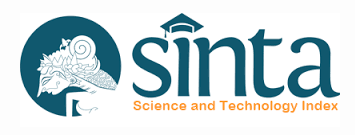TOLERANSI ANTAR UMAT BERAGAMA UNTUK MEWUJUDKAN MODERASI ISLAM
Abstrak
This research uses a qualitative approach. Sources of data obtained from primary data and secondary data. Data analysis using the descriptive phenomenological analysis method aims to describe the phenomenon of Islamic moderation with inter-religious tolerance. The results of the study are Islamic moderation with tolerance between religious communities, namely the progress of Islamic civilization. Muslims have a high tolerance for the progress of civilization and harmony. The occurrence of inter-religious tolerance cannot be separated from supporting and hindering factors. The supporting factors are religious teachings, the role of religious leaders, the role of the local government, the basic attitude of the local community, the attitude of ta'aruf (knowing each other), the attitude of tafahum (the attitude of understanding or understanding each other), the attitude of ta'awun (helping each other), history, economic activities, and the teachings of the ancestors. The inhibiting factors for tolerance are stereotypes, mutual suspicion, shallow religious knowledge, lack of understanding of the importance of living in harmony in society, mapping of places of residence, contempt for other groups, the majority and minority of the terms, and dislike of other people's religious ways. forms of tolerance; mutual respect for different beliefs, mutual assistance, and cooperation in the success of existing religious events.
Referensi
A’la, Adl, dkk, Nilai-nilai Pluralisme dalam Islam, Huansa, Bandung, 2005.
Abdullah, Masykuri, Pluralisme Agama dan Kerukunan dalam Keragaman, Penerbit Buku Kompas, Jakarta, 2001.
Al-Munawar, Said Agil Husain, Fikih Hubungan Antar Agama, Ciputat Press, Jakarta, 2005
Bukhori, Baidi , Toleransi Terhadap Umat Kritiani, IAIN Walisongo Semarang, Semarang, 2012.
Coppel, Charles, Indonesia Chinessa in Crisis, diterjemahkan oleh Tim Penerjemah PSH, Pustaka Sinar Harapan, Jakarta, 1994
Departmen Agama RI, Damai di Dunia, Damai Untuk Semua Pespektif Berbagai Agama, Badan Litbang, Jakarta, 2004.
Lexy J. Moleong, Metodologi Penelitian Kualitatif , PT Remaja Rosdakarya, Bandung, 2009.
Liliweri, Allo, Gatra-gatra Komunikasi Antarbudaya, Pustaka Pelajar, Yogyakarta, 2001
Lubis, Ridwan, Cetak Biru Peran Agama Merajut Kerukunan, Kesetaraan Gneder, dan Demokrasi dalam Masyarakat Multikultural, Puslitbang Kehidupan Beragama, Jakarta, 2005.
Th. Sumartana,. Dkk, Pluralisme, Konflik, dan Pendidikan Agama di Indonesia, DIAN/Interfidei, Yogyakarta, 2005.
Unjiya, M. Akrom, Lasem Negeri Dampoawang, Salma Idea , Yogyakarta, 2014
Warson Munawir, Ahmad, Kamus Arab Indonesia al-munawir, Balai Pustaka Progresif, Yogyakarta, t.th
Once an article was published in the journal, the author(s) are:
granted to the journal right licensed under Creative Commons License Attribution that allows others to share the work with an acknowledgment of the work's authorship. permitted to publish their work online in third parties as it can lead to wider dissemination of the work. continue to be the copyright owner and allow the journal to publish the article with the CC BY license receiving a DOI (Digital Object Identifier) of the work.





